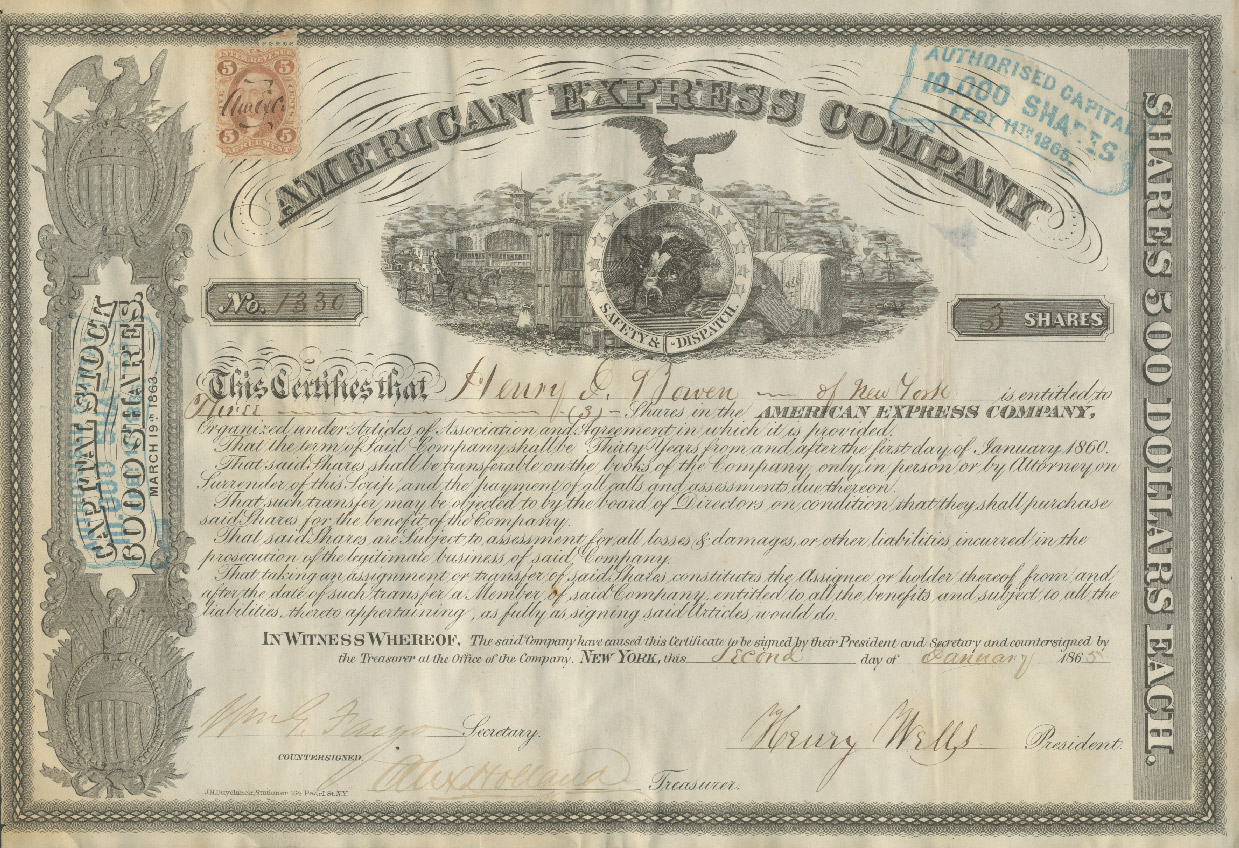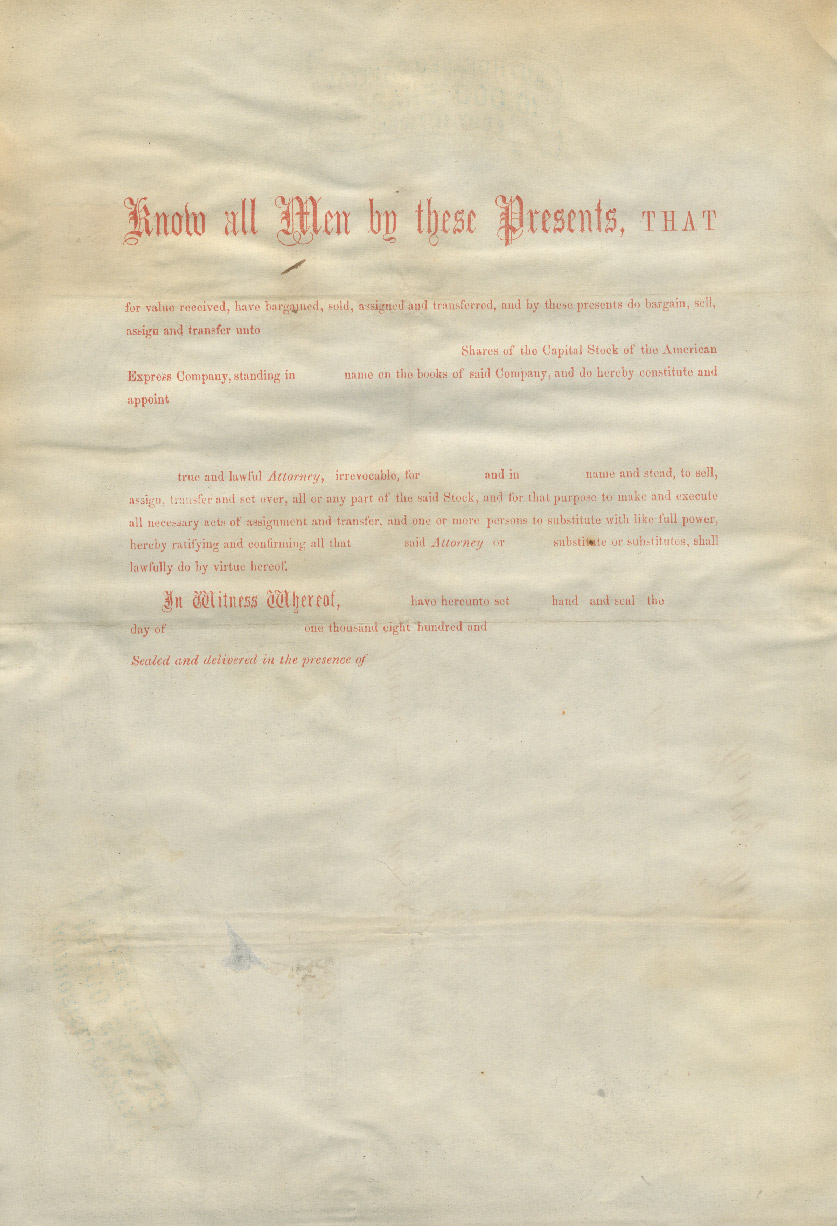Henry Wells
Henry Wells
Signed AMEX Stock Certificate - 1865
Original UNCANCELLED American Express Company stock certificate signed by BOTH founders, Henry Wells and William Fargo. Significantly, this certificate was issued in 1865 to one of New England’s most prominent citizens, Mr. Henry C. Bowen of New York. A hugely successful silk merchant, in 1845 Bowen commissioned Joseph C. Wells, the English-born architect who designed Bowen’s Plymouth Church in Brooklyn Heights, to design a summer home for the family in Woodstock. Wells designed a stunning five-bedroom, 6,000-square-foot Gothic Revival cottage, called Roseland Cottage by the family, was completed in the fall of 1846.
While Roseland Cottage was primarily a family country retreat, during the second half of the nineteenth century the Bowens more frequently entertained distinguished guests and hosted large festivities at Roseland Cottage. Three United States presidents, Ulysses S. Grant, Benjamin Harrison, and Rutherford B. Hayes, and three past and future presidential candidates, John C. Fremont, James G. Blaine, and William McKinley, in addition to a long list of senators, congressman, governors, and other political, literary, and social luminaries, made their way to Woodstock to participate in Bowen’s renowned Fourth of July celebrations. Eventually these events grew so large that Bowen purchased an approximately sixty-acre parcel in Woodstock and developed an elegant public park, replete with gilded fountains, decorative statuary, windmill, boathouse, and private bungalows, in which to host his Fourth of July celebrations. The park, named Roseland Park, was first opened in 1876 and in accordance with Bowen’s will is still open to the public today.
Roseland Cottage, designated a National Historic Landmark in 1992, remains one of the nation’s best preserved examples of Gothic Revival architecture. Roseland Cottage provides visitors a glimpse of the lifestyle and tastes of an upwardly mobile, ambitious, and close-knit family during the Victorian era.
Henry Bowen was issued Certificate #1330 for 3 shares at $500 each (the 2014 equivalent of $22,000) in the American Express Company, dated 2 January, 1865 and signed by William G. Fargo as secretary, Henry Wells as president, and Alexander Holland as treasurer. The brown Internal Revenue stamp is intact and the document is in beautiful fine condition. The certificate’s vignette features a dog, the traditional mascot of American Express preceding the centurion.
American Express was formed on March 18, 1850 by Henry Wells, William G. Fargo and John Butterfield through combination of Wells and Company. In 1868 the company merged with Merchants Union Express Company to become American Merchants Union Express Company. In 1873, the name was changed back to American Express.
With fellow express freight colleague Henry Wells, William Fargo was co-founder of Wells, Fargo & Co. Both men helped organize the American Express Company. Fargo served as the company’s president from 1868 until his death. After the discovery of gold in California, both Wells and Fargo recognized the desperate need of Westerners for expanded banking and express facilities. American Express was happy to stay in the East. So Fargo made his historic decision with Wells to found Wells Fargo & Co.—a company that was soon busy buying gold dust, selling drafts and doing a general banking and express business.


